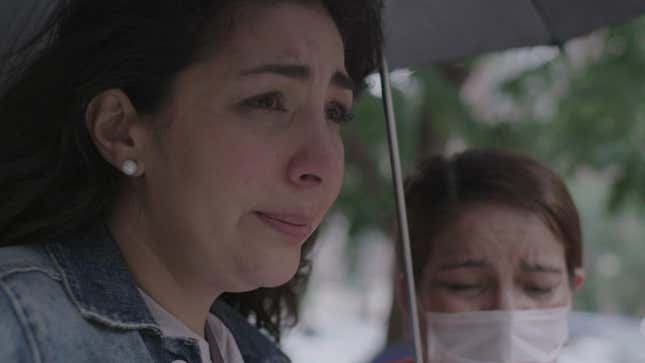Hulu’s ‘Stolen Youth’ Gives Closure to the Horrifying Sarah Lawrence Sex Cult Saga
The new docuseries chooses to follow the recovery of the victims over the descent of the madman, which elevates it over others in the true crime genre.
EntertainmentTV

I’ll admit, when I learned that Hulu was releasing the docuseries Stolen Youth: Inside The Cult at Sarah Lawrence, I was hesitant to get excited about it. What new revelations could a three-part true crime docuseries provide us that hasn’t been hashed out in the revelatory 2019 The Cut investigation, the countless pieces that article spawned, and a court ruling of 60 years in prison for cult leader and conman Larry Ray? I was sure this series would add to the eroding facade of the true crime genre, revealing once again that these retellings are just shock and horror fodder divvied up in episodic format for our mindless consumption. But while true crime is awfully formulaic at this point,I found Stolen Youth to possess a genuine twist: an ending that provided a path forward for the victims of Ray’s grotesque and manipulative crimes.
Within the first five minutes of the first episode, MGMT’s “Time to Pretend” drops the viewer right into 2009, as aerial and archival footage of Sarah Lawrence College plays on screen. As someone only a year older than Ray’s victims and who also attended a small liberal arts college, I was brought back to those early and unencumbered days of college that genuinely made one feel “young, wild, and free.” The three hours that follow underscore the aptness of the title. Not only did Larry commit unthinkable abuses against his victims—many of whom participated in the series—but the heinousness of stealing the optimistic and eager young adult years of these bright students was especially cruel.
The first episode explains how the charismatic Larry infiltrated his daughter Talia Ray’s friend group at Sarah Lawrence. What started off as crashing on the couch for a few nights turned into an ever-present, father-like figure in the campus housing, cooking the friend group steaks, keeping the kitchen clean, and offering advice to struggling adolescents. Raven Juarez, one of the students who never fell victim and remained wary to Ray’s manipulation, lays out the progression clearly: “Everyone at the beginning thought he was weird. And then, one by one, he would get them alone, have these conversations, and suddenly they’re like, Oh, he’s not so bad to Actually, he’s pretty great. Actually, he’s saving my life. Actually, he’s the best thing that ever happened to me. Actually, I’ll never not listen to him. Actually, fuck you, I’ll never listen to you if you talk bad about him. And it happened steeply. And it shocked me,” she explains.
-

-

-

-

-

-

-

-

-

-

-

-

-

-

-

-

-

-

-

-

-

-

-

-

-

-

-

-

-

-

-

-

-

-

-

-

-

-

-

-








































